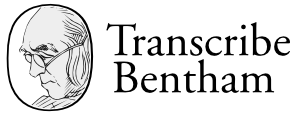All 2 entries tagged Crowdsourcing
No other Warwick Blogs use the tag Crowdsourcing on entries | View entries tagged Crowdsourcing at Technorati | There are no images tagged Crowdsourcing on this blog
December 21, 2016
Santa's DH Helpers
Writing about web page https://www.zooniverse.org/projects/steve-dot-ranford/santas-dh-helpers
Ever wished you had access to a troop of elves to help you achieve what would appear to be an impossibly large task? There are in fact a number of freely available online digital tools that academics can make use of, and it's easier than you may think to set up, as our christmas blog post this year looks to demonstrate.
Text transcription, classification and tagging are three relevant types of citizen science of use in the humanities. These can each enrich sources with structured metadata to help them be more useful in research methods of analysis over large sets of data.
Enabling members of the public and enthusiasts to get involved in a research project can also cause contributors to develop an affinity to the project and follow its progress - seeing their efforts combine with others' and being used to discover insights and often produce new representations and visualisations of the data. There are a number of existing projects in the humanities.
We've produced a demonstration project to show you just how easy it is to set-up a crowdsourcing project, anda one for you to get hands-on and play with. The work you'll be doing, is to help Santa transcribe letters he's received. These handwritten pages need transforming into transcribed text that can be used in the workshop to identify what children have requested.
Please pitch-in: Santa's DH Hepers on Zooniverse
Check out some other research projects with crowdsourcing:
Further resources:
- RunCoCo - how to Run a Community Collection Online (Oxford University Computing Services)
- Crowdsourcing - the wiki way of working (JISC Info Kits)
- Building the Digital Cultural Commons - (Open Knowledge Foudation - The Public Domain Review)
If you would like to explore how Zooniverse could be used in your current or future project, please drop us a line.
Happy Christmas from the Digital Humanities Team!
February 12, 2014
Crowdsourcing and Citizen Science
I'm currently pulling together examples of crowdsourcing for a digital humanities working lunch on Friday 28th February. I'm also pulling together examples on citizen science for Warwick's Public Engagement Network. So my head is very much in the realm of connecting "the public" with the work of researchers.
Pat Thomson asked "who is the public in public engagement?" and makes the point that "public" doesn't have to mean lowest common denominator. "The Public" includes highly educated well informed adults who just happen not to work as academics. And there are a lot of people who come under that category. Melvyn Bragg has suggested the term "mass intelligensia" to describe this phenomena.
At the same time, we have the web. The web is fantastic at connecting together people with an interest in the long tail. You might not be able to attract 50 people to your talk on [insert niche research topic here ;-)], but put that paper in an open access repository, blog about it, tweet it, and you may find 50 readers who not only want to hear what you have to say but they may even be able to add their own expertise. They might even be on the other side of the world and this is the only way they could have found your work. This is the revolution in research, enabled by open access, that is waiting to blossom.
It's in the two way communication that some really interesting research models are emerging. There is a long tradition of science communication and science education, but citizen science takes it one step further. Citizen science can potentially do some of the work of science. Voluntary labour on a massive scale, collecting and analysing data for use by scientists.
Treezillais a site where anyone can submit information about the trees around them. Its ambition is no less than "making a monster map of Britain's trees". It's a fantastic example of crowdsourcing and citizen science in action. And of course I'm very keen to hear from those Warwick Researchers already doing citizen science!
The humanities can do crowdsourcing too. There are range of approaches in use, but one of my favourites is Transcribe Bentham.

Transcribe Bentham is an online transcription desk that has so far transcribed nearly 7,000 manuscripts, marked up for machine readability and scholarly analysis. As Causer and Terras describe in their recent paper, it is "indicative of a new focus in digital humanities scholarship: reaching out to encourage user participation and engagement, whilst providing tools which can be repurposed for others". If you think this is just a novelty, think again: the signs are that funders are appreciating the benefits of these new methodologies.
We'll be having a look at this and several other humanities-based crowdsourcing projects on 28th February, 12-2 in the Wolfson Research Exchange, Lunch Provided, please let me know if you're coming so we can provide enough food!
I'm really looking forward to running this session, and I'd love to hear from Warwick researchers using these approaches already.
amber (dot) thomas @ warwick.ac.uk
@ambrouk
 Steve Ranford
Steve Ranford

 Please wait - comments are loading
Please wait - comments are loading

 Loading…
Loading…

